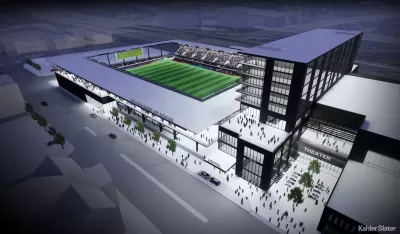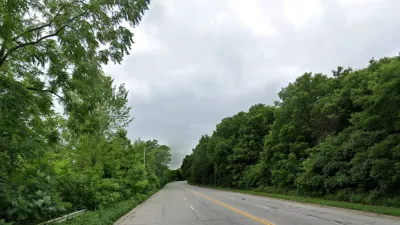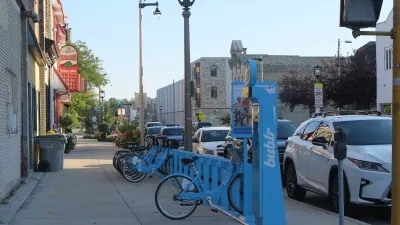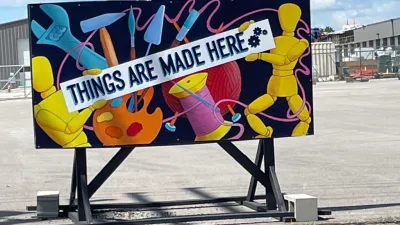While their developers often tout jobs and local economic development as benefits of major stadium projects, research shows these venues often make little impact on local economies.

As Milwaukee debates the merits of a $160 million soccer stadium development that will likely require public funding, Graham Kilmer, writing in Urban Milwaukee, points out that “Academic economists almost universally agree that sports projects do not generate new jobs or income for a city.”
Furthering this point, a new report from the Center on Wisconsin Strategy (COWS) “relies on two studies that show the majority of economists agree that sports projects do not actually provide the benefits touted by developers and the report lays out five soccer stadium projects across the U.S. in the last five years, which together have received $500 million in public money.”
According to experts, sports venues don’t produce the expected economic benefits for two main reasons: the substitution effect, which holds that the money spent on sports would be spent on other entertainment in the area, and leakage, wherein public investment “leaks out of the community” via high salaries that are spent outside the local area.
“If public officials are looking for projects to stimulate growth, they should look to infrastructure and education, according to the St. Louis Fed paper [analyzed in the COWS study].” COWS and their collaborator, the Milwaukee Area Service and Hospitality Labor Organization (MASH), argue that “Milwaukee policy makers should look at what kind of benefits they can gain for the community if they consider financing the project.”
FULL STORY: Report Finds Little Economic Impact From Stadium Projects

Planetizen Federal Action Tracker
A weekly monitor of how Trump’s orders and actions are impacting planners and planning in America.

San Francisco's School District Spent $105M To Build Affordable Housing for Teachers — And That's Just the Beginning
SFUSD joins a growing list of school districts using their land holdings to address housing affordability challenges faced by their own employees.

Can We Please Give Communities the Design They Deserve?
Often an afterthought, graphic design impacts everything from how we navigate a city to how we feel about it. One designer argues: the people deserve better.

The EV “Charging Divide” Plaguing Rural America
With “the deck stacked” against rural areas, will the great electric American road trip ever be a reality?

Judge Halts Brooklyn Bike Lane Removal
Lawyers must prove the city was not acting “arbitrarily, capriciously, and illegally” in ordering the hasty removal.

Engineers Gave America's Roads an Almost Failing Grade — Why Aren't We Fixing Them?
With over a trillion dollars spent on roads that are still falling apart, advocates propose a new “fix it first” framework.
Urban Design for Planners 1: Software Tools
This six-course series explores essential urban design concepts using open source software and equips planners with the tools they need to participate fully in the urban design process.
Planning for Universal Design
Learn the tools for implementing Universal Design in planning regulations.
Borough of Carlisle
Smith Gee Studio
City of Camden Redevelopment Agency
City of Astoria
Transportation Research & Education Center (TREC) at Portland State University
City of Camden Redevelopment Agency
Municipality of Princeton (NJ)





























